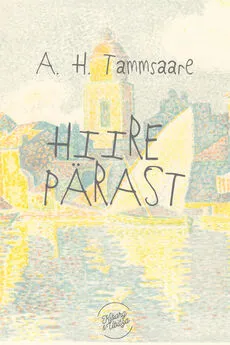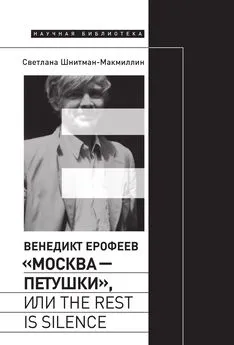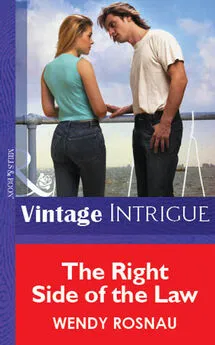W. Ainsworth - Rookwood
- Название:Rookwood
- Автор:
- Жанр:
- Издательство:неизвестно
- Год:неизвестен
- ISBN:нет данных
- Рейтинг:
- Избранное:Добавить в избранное
-
Отзывы:
-
Ваша оценка:
W. Ainsworth - Rookwood краткое содержание
Rookwood - читать онлайн бесплатно полную версию (весь текст целиком)
Интервал:
Закладка:
His work being nearly completed, he looked around for Jack Palmer, whom he had remarked during the oration, but could nowhere discover him. Peter was about to place the flagon, now almost drained of its contents, upon its former resting-place, when Small took it from his hands.
"' In poculi fundo residuum non relinque, ' admonisheth Pythagoras," said he, returning the cup drained of its contents to the sexton.
"My task here is ended," muttered Peter, "but not elsewhere. Foul weather or fine, thunder or rain, I must to the church."
Bequeathing his final instructions to certain of the household who were to form part of the procession, in case it set out, he opened the hall door, and, the pelting shower dashing heavily in his face, took his way up the avenue.
| Contents |
CHAPTER III
THE CHURCHYARD
LIGHTS streamed through the chancel window as the sexton entered the churchyard, darkly defining all the ramified tracery of the noble Gothic arch, and illumining the gorgeous dyes of its richly-stained glass, profusely decorated with the armorial bearings of the founder of the fane, and the many alliances of his descendants. The sheen of their blazonry gleamed bright in the darkness, as if to herald to his last home another of the line whose achievements it displayed. Glowing colourings, checkered like rainbow tints, were shed upon the broken leaves of the adjoining yew-trees, and upon the rounded grassy tombs.
Opening the gate, as he looked in that direction, Peter became aware of a dark figure, enveloped in a large black cloak, and covered with a slouched hat, standing at some distance, between the window and the tree, and so intervening as to receive the full influence of the stream of radiance which served to dilate its almost superhuman stature. The sexton stopped. The figure remained stationary. There was something singular both in the costume and situation of the person. Peter's curiosity was speedily aroused, and, familiar with every inch of the churchyard, he determined to take the nearest cut, and to ascertain to whom the mysterious cloak and hat belonged. Making his way over the undulating graves, and instinctively rounding the headstones that intercepted his path, he quickly drew near the object of his enquiry. From the moveless posture it maintained, the figure appeared to be unconscious of Peter's approach. To his eyes it seemed to expand as he advanced. He was now almost close upon it, when his progress was arrested by a violent grasp laid on his shoulder. He started, and uttered an exclamation of alarm. At this moment a vivid flash of lightning illumined the whole churchyard, and Peter then thought he beheld, at some distance from him, two other figures, bearing upon their shoulders a huge chest, or, it might be, a coffin. The garb of these figures, so far as it could be discerned through the drenching rain, was fantastical in the extreme. The foremost seemed to have a long white beard descending to his girdle. Little leisure, however, was allowed Peter for observation. The vision no sooner met his glance than it disappeared, and nothing was seen but the glimmering tombstones—nothing heard but the whistling wind and the heavily-descending shower. He rubbed his eyes. The muffled figure had vanished, and not a trace could be discovered of the mysterious coffin-bearers, if such they were.
"What have I seen?" mentally ejaculated Peter: "is this sorcery or treachery, or both? No body-snatchers would visit this place on a night like this, when the whole neighbourhood is aroused. Can it be a vision I have seen. Pshaw! shall I juggle myself as I deceive these hinds? It was no bearded demon that I beheld, but the gipsy patrico, Balthazar. I knew him at once. But what meant that muffled figure; and whose arm could it have been that griped my shoulder? Ha! what if Lady Rookwood should have given orders for the removal of Susan's body. No, no; that cannot be. Besides, I have the keys of the vault; and there are hundreds now in the church who would permit no such desecration. I am perplexed to think what it can mean. But I will to the vault." Saying which, he hastened to the church porch, and after wringing the wet from his clothes, as a water-dog might shake the moisture from his curly hide, and doffing his broad felt hat, he entered the holy edifice. The interior seemed one blaze of light to the sexton, in his sudden transition from outer darkness. Some few persons were assembled, probably such as were engaged in the preparations; but there was one group which immediately attracted his attention.
Near the communion-table stood three persons, habited in deep mourning, apparently occupied in examining the various monumental carvings that enriched the walls. Peter's office led him to that part of the church. About to descend into the vaults, to make the last preparations for the reception of the dead, with lantern in hand, keys, and a crowbar, he approached the party. Little attention was paid to the sexton's proceedings, till the harsh grating of the lock attracted their notice.
Peter started as he beheld the face of one of the three, and relaxing his hold upon the key, the strong bolt shot back in the lock. There was a whisper amongst the party. A light step was heard advancing towards him; and ere the sexton could sufficiently recover his surprise, or force open the door, a female figure stood by his side.
The keen, enquiring stare which Peter bestowed upon the countenance of the young lady so much abashed her, that she hesitated in her purpose of addressing him, and hastily retired.
"She here," muttered Peter; "nay, then, I must no longer withhold the dreaded secret from Luke, or Ranulph may indeed wrest his possessions from him."
Reinforced by her companions, an elderly lady and a tall handsome man, whose bearing and deportment bespoke him to be a soldier, the fair stranger again ventured towards Peter.
"You are the sexton," said she, addressing him in a voice sweet and musical.
"I am," returned Peter. It was harmony succeeded by dissonance.
"You, perhaps, can tell us, then," said the elderly lady, "whether the funeral is likely to take place to-night? we thought it possible that the storm might altogether prevent it."
"The storm is over, as nearly as may be," replied Peter. "The body will soon be on its way. I am but now arrived from the hall."
"Indeed!" exclaimed the lady. "None of the family will be present, I suppose. Who is the chief mourner?"
"Young Sir Ranulph!" answered the sexton. "There will be more of the family than were expected."
"Is Sir Ranulph returned?" asked the young lady, with great agitation of manner. "I thought he was abroad; that he was not expected. Are you sure you are rightly informed?"
"I parted with him at the hall not ten minutes since," replied Peter. "He returned from France to-night most unexpectedly."
"Oh, mother!" exclaimed the younger lady, "that this should be—that I should meet him here. Why did we come?—let us depart."
"Impossible," replied her mother; "the storm forbids it. This man's information is so strange I scarce can credit it. Are you sure you have asserted the truth?" said she, addressing Peter.
"I am not accustomed to be doubted," answered he. "Other things as strange have happened at the hall."
"What mean you?" asked the gentleman, noticing this last remark.
"You would not need to ask the question of me, had you been there, amongst the other guests," retorted Peter. "Odd things, I tell you, have been done there this night, and stranger things may occur before the morning."
"You are insolent, sirrah. I comprehend you not."
"Enough! I can comprehend you ," replied Peter, significantly; "I know the count of the mourners invited to this ceremonial, and I am aware that there are three too many."
"Know you this saucy knave, mother?"
"I cannot call him to mind, though I fancy I have seen him before."
"My recollection serves me better, lady," interposed Peter. "I remember one, who was once the proud heiress of Rookwood—ay, proud and beautiful. Then the house was filled with her gallant suitors. Swords were crossed for her. Hearts bled for her. Yet she favoured none, until one hapless hour. Sir Reginald Rookwood had a daughter; Sir Reginald lost a daughter. Ha!—I see I am right. Well, he is dead and buried; and Reginald, his son, is dead likewise; and Piers is on his road hither; and you are the last, as in the course of nature you might have been the first. And, now that they are all gone, you do rightly to bury your grievances with them."
"Silence, sirrah," exclaimed the gentleman, "or I will beat your brains out with your own spade."
"No; let him speak, Vavasour," said the lady, with an expression of anguish—"he has awakened thoughts of other days."
"I have done," said Peter, "and must to work. Will you descend with me, madam, into the sepulchre of your ancestry? All your family lie within—ay, and the Lady Eleanor, your mother, amongst the number."
Mrs. Mowbray signified her assent, and the party prepared to follow him.
The sexton held the lantern, so as to throw its light upon the steps as they entered the gloomy receptacle of the departed. Eleanor half repented having ventured within its dreary limits, so much did the appearance of the yawning catacombs, surcharged with mortality, and, above all, the ghostly figure of the grim knight, affect her with dread, as she looked wistfully around. She required all the support her brother's arm could afford her; nor was Mrs. Mowbray altogether unmoved.
"And all the family are here interred, you say?" enquired the latter.
"All," replied the sexton.
"Where, then, lies Sir Reginald's younger brother?"
"Who?" exclaimed Peter, starting.
"Alan Rookwood."
"What of him?"
"Nothing of moment. But I thought you could, perhaps, inform me. He died young."
"He did," replied Peter, in an altered tone—"very young; but not before he had lived to an old age of wretchedness. Do you know his story, madam?"
"I have heard it."
"From your father's lips?"
"From Sir Reginald Rookwood's—never. Call him not my father, sirrah; even here I will not have him named so to me."
"Your pardon, madam," returned the sexton. "Great cruelty was shown to the Lady Eleanor, and may well call forth implacable resentment in her child; yet methinks the wrong he did his brother Alan was the foulest stain with which Sir Reginald's black soul was dyed."
"With what particular wrong dost thou charge Sir Reginald?" demanded Major Mowbray. "What injury did he inflict upon his brother Alan?"
"He wronged his brother's honour," replied the sexton; "he robbed him of his wife, poisoned his existence, and hurried him to an untimely grave."
Eleanor shudderingly held back during this horrible narration, the hearing of which she would willingly have shunned, had it been possible.
"Can this be true?" asked the major.
"Too true, my son," replied Mrs. Mowbray, sorrowfully.
"And where lies the unfortunate Alan?" asked Major Mowbray.
"'Twixt two crossroads. Where else should the suicide lie?"
Evading any further question, Peter hastily traversed the vault, elevating the light, so as to reveal the contents of each cell. One circumstance filled him with surprise and dismay—he could nowhere perceive the coffin of his daughter. In vain he peered into every catacomb—they were apparently undisturbed; and, with much internal marvelling and misgiving, Peter gave up the search. "That vision is now explained," muttered he; "the body is removed, but by whom? Death! can I doubt? It must be Lady Rookwood—who else can have any interest in its removal. She has acted boldly. But she shall yet have reason to repent her temerity." As he continued his search, his companions silently followed. Suddenly he stopped, and, signifying that all was finished, they not unwillingly quitted this abode of horror, leaving him behind them.
Читать дальшеИнтервал:
Закладка:




![Rakot - Апостол Новой Веры. Том 1 [СИ]](/books/1061842/rakot-apostol-novoj-very-tom-1-si.webp)
![Rakot - Укуренный мир. Том 3 [СИ]](/books/1073038/rakot-ukurennyj-mir-tom-3-si.webp)




